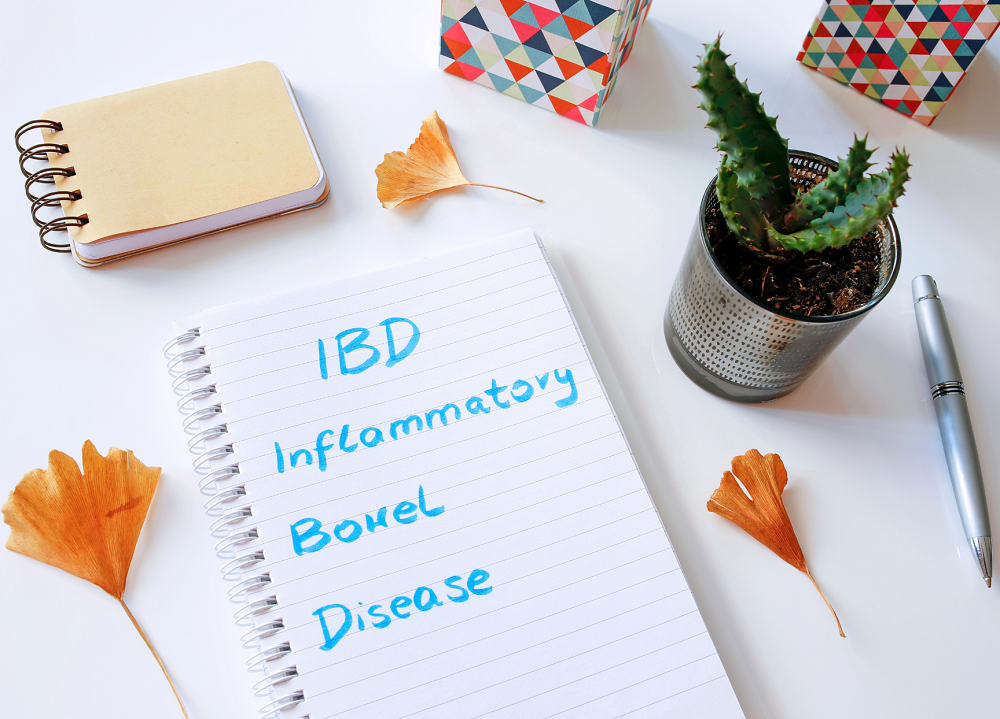The truth is we do not really know exactly what causes Inflammatory Bowel disease but we do know that some things play a role.
Genetics
We know that if someone in your family has inflammatory bowel disease it is more likely that other members of your family will develop inflammatory bowel disease. This suggests that some people carry something in their genes which pre-disposes them. The strongest example of this is in identical twins. In identical twins, if one has Crohn’s disease, two-thirds of the other twins will also develop Crohn’s disease. If a member of your family has inflammatory bowel disease, then the chance of you developing Crohn’s disease or ulcerative colitis is around 10%.
We now know a lot about the genes which increase your risk of developing inflammatory bowel disease. There are lots of genes (more than 100) each of which can play a small role in increasing your risk. These genes affect many different systems in your body and it reflects the complicated nature of inflammatory bowel disease. No one gene causes inflammatory bowel disease but your risk is increased if you carry lots of these particular genes, each of which causes a small increase in risk. The surprising thing is that many of these genes are shared with other diseases which you might not expect. Other autoimmune diseases (diseases where the body’s immune system plays a role in the development), such as diabetes and rheumatoid arthritis share some of the genes. Unfortunately, because the genes are so complicated we cannot yet test individuals to see whether or not they will develop inflammatory bowel disease.
Environmental factors
For most people genetics only plays a small role in the development of inflammatory bowel disease. We think the rest is due to something in the environment but we do not really know what that is. We do however have some ideas.
- Diet: We do not really know what it is in the diet which might cause inflammatory bowel disease. We do however, think that a poor diet with lots of processed foods and high sugar and fat may be associated with inflammatory bowel disease. For this reason, along with many other reasons, you should try and eat a healthy diet with lots of fruit and fibre and non-processed foods.
- Bacteria in the bowel: We each carry millions of bacteria in our bowel. Each of us has a unique pattern of bacteria which we call our bacterial flora. We know that in patients with inflammatory bowel disease the bacterial flora changes. Patients with inflammatory bowel disease tend to have fewer kinds of bacteria in the bowel and sometimes have more of a particular kind present. However, we do not really know if this causes the development of the disease or whether it is as a result of having the condition. This is a huge area of research and hopefully we will know more in the years to come.
- Smoking: We know that if you smoke you are more likely to develop Crohn’s disease. We also know that if you smoke, the treatment that you receive for Crohn’s disease is less likely to work. For this reason we tell all patients with Crohn’s disease that they must stop smoking. It is another good reason why smoking is not good for you. Unusually, smoking does seem to reduce your risk chances of getting ulcerative colitis. However, this is outweighed by all the damage that smoking can cause to your heart and lungs, so we would never advise a patient to start smoking for their ulcerative colitis.
- Psychological stress: Lots of patients with inflammatory bowel disease tell us that their disease is made worse by stress. Some patients also think that they developed inflammatory bowel disease after particular periods of stress. However, the situation is always very complex as everybody’s life is stressful and it is often easy to remember a particular time as being stressful looking back when you were having a flare or after developing a disease. We do, however, think that on balance stress probably does play a role. But the other challenge is that with modern living, it is extremely difficult to remove all the stress from our lives, so this is rarely something we can use as a treatment.
- Living in the modern world: We think that Inflammatory Bowel disease is more common in developed countries than in developing countries. The cause for this is not known. Lots of different things have been suggested as possibly being the cause for this difference. Some people have proposed that perhaps refrigerated foods, or micro particles which are found in substances such as toothpaste, or sulphur containing foods might be a risk factor. The reality is, however, that we do not really know if any of these are true as it has been very difficult to prove.
